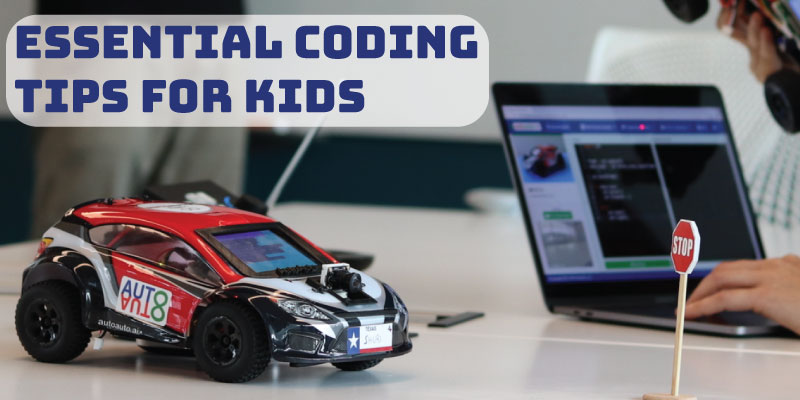The process of learning to code is an exciting one, full of growth and discovery. You are an essential part of your pupils’ journey through this process of teaching coding to kids as their teachers. These 10 suggestions aim to help children through their journeys of becoming future programmers.
#1 Understanding the fundamentals
Make sure your kids understand the basics thoroughly before letting them dream of creating innovative apps or games. When teaching coding to kids, concentrate on fundamental ideas such as functions, conditionals, loops, and variables. Continue with these fundamentals until it comes naturally to them. Everything that follows is much easier to understand when there is a solid foundation in place.
#2 Encourage Regular Practice
It’s common knowledge that practice makes perfect, and the same is true with coding. The catch is that you should push your pupils to code a little bit each day. Similar to picking up a new language, consistency is essential. Daily coding for even 15 minutes helps maintain their level of confidence.
#3 Hands-on Projects
While practicing textbook exercises is fantastic, nothing compares to working on real projects. Motivate your pupils to begin small by having them use the AutoAuto curriculum to practice Python on self-driving automobiles. They may put what they’ve learned into practice and watch their coding come to life using these projects. Moreover, having something tangible to demonstrate their hard work is a huge confidence boost.
#4 Establish a Collaborative Setting
Writing code doesn’t have to be done alone. As a matter of fact, collaborative learning produces some of the best learning outcomes. Urge students to work together on projects, attend study sessions, or join coding clubs. They will not only exchange knowledge with one another but also develop important collaboration abilities that are critical in the actual world.
#5 Never Back Down from a Challenge
Teaching coding to kids can be challenging, particularly when dealing with a bug or issue. However, this is the stage of growth! Instruct budding coders to deconstruct large coding problems into smaller, more doable ones.
#6 Learn from Others
You can learn so much from examining other people’s code. Teach your students to evaluate the work of seasoned programmers. What method do programmers use to solve coding problems? What is the organization of their code? It’s not about copying; rather, it’s about picking up new skills and getting ideas to enhance one’s coding style.
#7 Teaching-Learning Approach
Teaching is one of the best methods to learn. Encourage your students to share their understanding of topics with other classmates. As they impart knowledge, they are consolidating their own comprehension and pinpointing areas in which they may want additional training. It also gives them a huge boost in confidence.
#8 Take Rest Periods
Burnout is real since coding is a difficult job. Encourage regular pauses that your pupils need. They can return to their coding with clearer heads after taking a brief break from the screen. And occasionally, while they’re not actively thinking about it, the answer to a problem just arrives!
#9 Perseverance and patience is Key
Emphasize to your students that learning to code is a journey rather than a quick fix. Challenges and failures are inevitable, but they are all a necessary part of the process. Urge them to enjoy the little victories along the way, to persevere through the difficult moments, and to have patience with themselves. It will take time and effort for them to succeed.
#10 Programming with AutoAuto
Teaching coding to kids can be made fun with AutoAuto. This EdTech platform offers advanced Python coding opportunities beyond its introductory courses to schools across Dubai & the Middle East. Explore specialized courses in AI, machine learning, and computer vision, allowing students to delve deeper into the world of coding and prepare them for future challenges.
Incorporating these tips into your teaching can make a world of difference in how quickly and effectively your students learn to code. It’s all about creating an environment where they feel supported, challenged, and inspired to keep pushing forward. And remember, the journey to becoming a proficient coder is as important as the destination.







Recent Comments